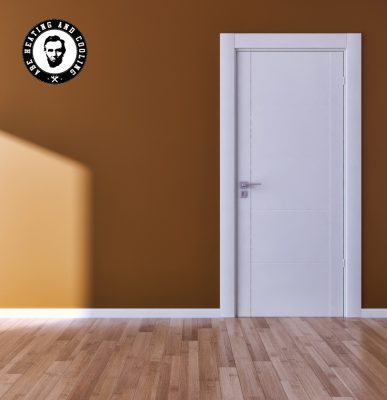“Abe's Heating and cooling were professional and on time. they helped me with two time sensitive projects and did excellent work. I know who I'll be calling if I should ever need an HVAC technician.”
Blog
 Closing doors and vents in unused rooms may seem like a reasonable way to lower energy costs. The truth, however, is that doing so may be costing you more money by reducing energy efficiency. Here’s why.
Closing doors and vents in unused rooms may seem like a reasonable way to lower energy costs. The truth, however, is that doing so may be costing you more money by reducing energy efficiency. Here’s why.
How the blower works
The blower pulls air from the house through the return ducts and pushes it back throughout the house via supply ducts. The blower pushes against a maximum pressure difference, typically 0.5 inches of water column (iwc). The blower in a high-efficiency system is powered by an electronically commutated motor (ECM), which adjusts its speed based on the conditions. The blower in a standard system is powered by a permanent split capacitor (PSC) which does not vary its speed, but rather stays constant regardless of conditions.
Closed rooms become pressurized
If the air supply is too restrictive it increases the pressure the blower pushes against. Closed doors and vents can cause this pressure build-up.
The rest of the house becomes depressurized
As the HVAC attempts to draw more air than is available, outside air can get drawn in through the chimney or other gaps around exterior doors and windows.
Ventilation is key
The V in HVAC stands for ventilation, and is an important part of the system which functions by constantly circulating air. Air is drawn in through intake vents, then heated or cooled and sent back through the house. That air is then drawn back in and the cycle continues. Despite some leaks that exist in any home, this is essentially a closed, balanced system. Air is drawn in and pushed back out at the same rate. When a door is closed off, the HVAC still pumps air into that room through the vent, but that air is blocked from the intake vent. If the vents are closed, the result can be even more dire.
Duct leakage
Since most homes don’t have sealed ducts, the added pressure can cause more leakage in the ducts.
Lower air flow
In response to closed doors or vents, a PSC blower will move less air. (An ECM blower will work harder to keep the air flow up.)
Increased energy use
The conditioned air will look for some way to escape and rather than making its way back into the system, it may leak into an attic or through gaps around windows. This wastes energy by causing the system to work harder to maintain the proper temperature
Reduced comfort
Low air flow and air leaks prevents the system from maintaining a consistent temperature throughout the home. Some rooms may be too hot or too cold.
Frozen air conditioner coil
The increased pressure and poor air circulation can cause the air conditioner to develop refrigerant leaks, which cause the lines and coil to freeze.
Damaged compressor and cracked heat exchanger
Low refrigerant due to leaks can damage the system, including the compressor and the heat exchanger. A cracked heat exchanger can also leak carbon monoxide into the home.
Condensation and mold growth
Closed rooms can have lower surface temperatures resulting in condensation and mold growth.
Talk to your HVAC professional about ways to increase energy efficiency.